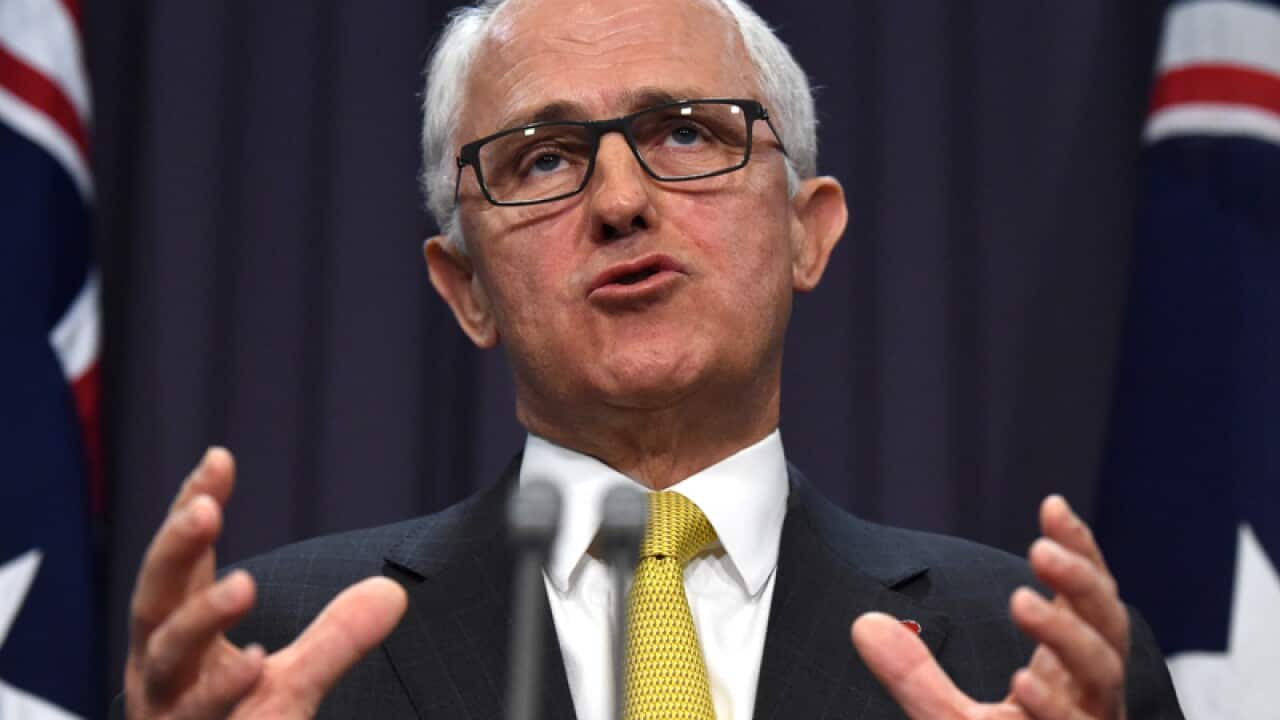The spectacle of this year’s US election has reached around the world, culminating with the stunning victory of Donald Trump over Hillary Clinton last night.
It seems that no area of life has been left untouched.
Doctor Fiona Martin, an Educational and Developmental Psychologist and Director of the Sydney Child Psychology Centre, said that it was quite the topic of conversation among children.
Recommended Reading:

Trump has won: Here's what that means for Australia
“A lot of children came in yesterday talking about the election when they came into the appointments,” she told SBS.
“It’s thrown around in the media and it’s talked about by their parents,” she said.
Dr Martin’s own daughter is no exception.
“She’s very interested in the election,” Dr Martin said.
“She was inspired by an American female running for the presidency and the prospects that could bring,” she said, “for her, it was inspirational.” The 10-year-old would ask questions all the time, even asking what time the results would be out on Election Day.
The 10-year-old would ask questions all the time, even asking what time the results would be out on Election Day.

Children often model their behavior on parents and role models, and that includes those in the media. Source: YouTube / Hillary Clinton
She was disappointed when her mother broke news of Clinton's loss to her.
Dr Martin says that her daughter's level of interest is not unusual, and that school-age children are often very interested in politics, often absorbing the views of their parents.
“Children are socialised at a young age to believe certain views on issues, so they’re very much influenced by their parents by political persuasion,” she said.
Related Reading:

How Donald Trump won the White House
Despite the interest, however, children’s understanding of policies and ideologies can be limited.
“You should answer questions when they ask them, to the best of your ability.
“You should try and teach your children about how the political system works, rather than necessarily the political ideology itself,” she said.
That will give them a framework to understand and interpret political developments. Still, the advent of a Trump presidency may require extra work from parents if the President-elect continues to make comments which have been construed as divisive, sexist and racist.
Still, the advent of a Trump presidency may require extra work from parents if the President-elect continues to make comments which have been construed as divisive, sexist and racist.

Trump's rhetoric may be constrained now that he has been elected to a position of responsibility, Dr Martin says. Source: YouTube / Hillary Clinton
“We don’t know how he’s going to behave in office – we can only see how he’s behaved thus far.
“A child will behave according to what they observe – normally that means modeling behavior on parents or adult role models,” Dr Martin said, “but the same goes for political leaders.”
Related Reading:

Victory is vindication for Trump supporters
For the next four years, children around the world will continue to see a President Trump on their TV screens.
That elevates his stature in children’s minds, Dr Marin said, children will be keenly aware of his power and leadership role.
There’s a risk his behavior – seen as bullying and divisive by many – could be replicated in the school-yard.
That was even a theme of one of Hillary Clinton's most talked about ads, titled 'Role Models'.
Role Models | 'Our Children are Watching'
“The media has an important role to play with portrayal of this president in particular.
“If this person is glorified and seen as doing good – when in fact he’s creating a culture of racism and sexism – then there’s a risk that that behavior is normalised and socialized,” she said.
There are all-ready reports of dissonance in some American families, with Hispanic and Muslim minorities in particular questioning whether they're welcome.
Dr Martin says children will need reassurance if feelings of insecurity grow.
"In Australia, we’d say there are laws to protect that, that it’s not accepted," Dr Martin said.
While it can be difficult to control children’s level of access to media, it will be important to keep a dialogue with kids, to explain and interpret what’s happening.
“Parent’s do have an important role to play – parents always have,” Dr Martin said.
If divisive rhetoric continues to dominate the discourse in the United States, explaining the difference between Australia and America might be one effective tool.
“I think it’s important to explain to young children the messages and the values that we have – are ones about equality and justice diversity and acceptance, and what does Australia stand for?” Dr Martin said.
The Trump platform is not as popular in Australia, Dr Martin said, we have more positive views on immigration and leaders who are abhorred by Trump’s behavior.
“We’re very fortunate to be in a country where we are accepting and tolerant of people,” she said.




